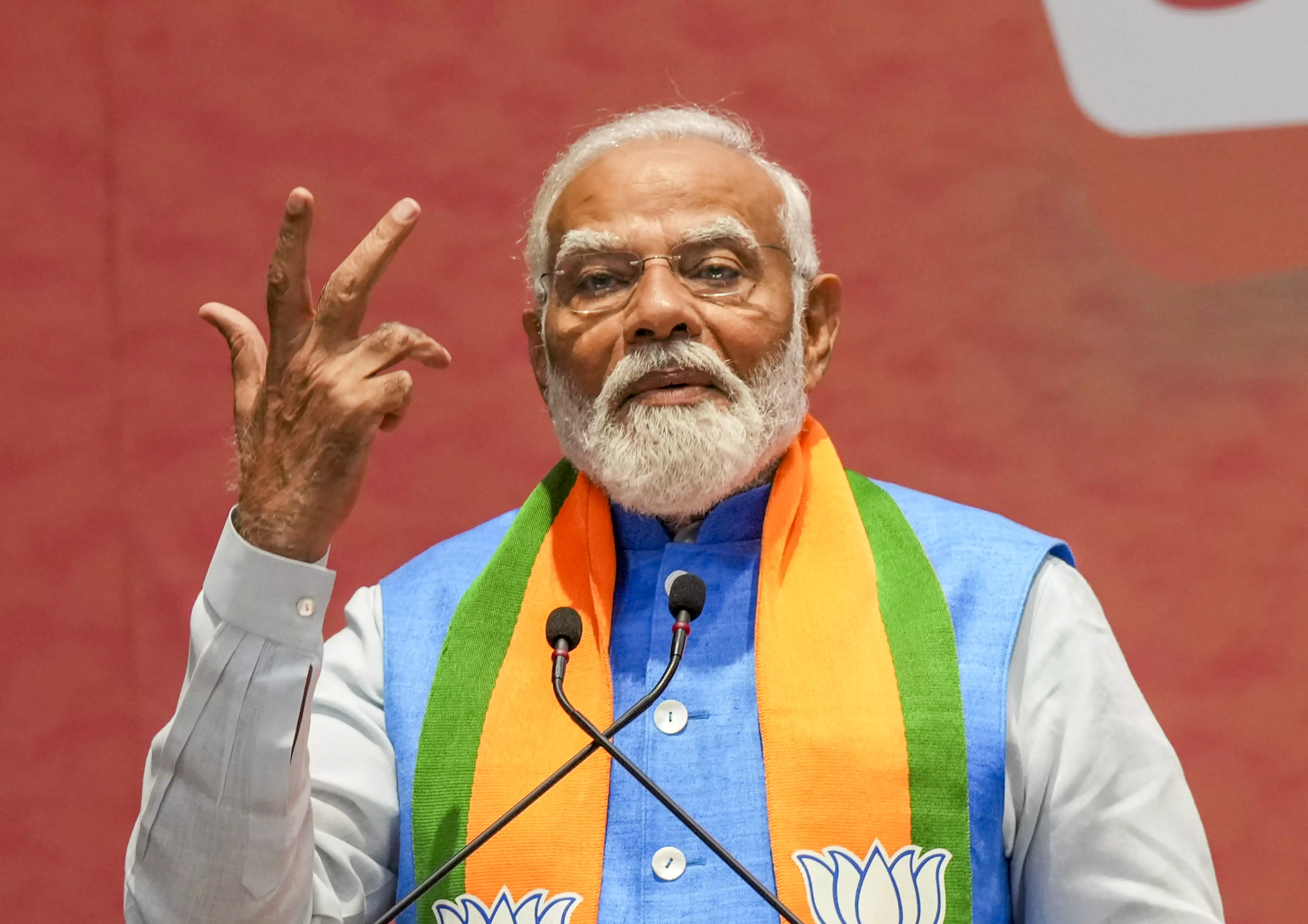
- Home
- India
- World
- Premium
- THE FEDERAL SPECIAL
- Analysis
- States
- Perspective
- Videos
- Sports
- Education
- Entertainment
- Elections
- Features
- Health
- Business
- Series
- In memoriam: Sheikh Mujibur Rahman
- Bishnoi's Men
- NEET TANGLE
- Economy Series
- Earth Day
- Kashmir’s Frozen Turbulence
- India@75
- The legend of Ramjanmabhoomi
- Liberalisation@30
- How to tame a dragon
- Celebrating biodiversity
- Farm Matters
- 50 days of solitude
- Bringing Migrants Home
- Budget 2020
- Jharkhand Votes
- The Federal Investigates
- The Federal Impact
- Vanishing Sand
- Gandhi @ 150
- Andhra Today
- Field report
- Operation Gulmarg
- Pandemic @1 Mn in India
- The Federal Year-End
- The Zero Year
- Science
- Brand studio
- Newsletter
- Elections 2024
- Events
- Home
- IndiaIndia
- World
- Analysis
- StatesStates
- PerspectivePerspective
- VideosVideos
- Sports
- Education
- Entertainment
- ElectionsElections
- Features
- Health
- BusinessBusiness
- Premium
- Loading...
Premium - Events

Is PM worried his position may be challenged in Parliament and within the BJP? Did that persuade him to throw caution and political decency to the winds?
Prime Minister Narendra Modi’s Banswara speech, in which he accused the Congress of preparing to grab the gold of Hindu women, not sparing even the mangalsutra, and hand it over to infiltrators and those who have more children, is condemnable.
It demeans India in the comity of nations, incites negative sentiments towards the minorities, misrepresents the platform of the Congress party, disrespects the intelligence of his audience, and reveals a surprising degree of nervousness, bordering on desperation, about his party’s election prospects.
How do we interpret it?
Could it be that the PM did not target the minorities when he said that they have more children? It could, in theory, be that he meant to say the Congress intends to grab the property of Hindu women and distribute it to the people of Bihar – after all, the people of Bihar have the highest total fertility rate, among all collective identities in India.
The average number of children born to a woman in Bihar is three, while the average number of children born to a Muslim woman in India is 2.3.
And, could it be that by the term ghuspetiyon, infiltrators, the PM meant only the illegal migrants from other countries and not the minorities in general?
Such explanations do not hold, because he was attacking the Congress party as a party that favours the minorities, taking out of context, to make that point, an infelicitous remark by former Prime Minister Manmohan Singh while making the case that the most deprived sections of society should have the first claim on the nation’s resources.
Minorities and special benefits
Manmohan Singh made that statement in 2006, and went on to head the UPA government for eight more years. Did the UPA government make any attempt to give any special benefit to the minorities, leave alone give them the first claim on the nation’s resources?
Between 2008 and 2014, rural real wages, adjusted for inflation, went up steadily for six consecutive years, resulting in a massive reduction in poverty.
Did the rural real wages improve only for Muslims? Did more Muslims get admission to school under the Right to Education Act as compared to other communities? Did Muslims get more work under the Mahatma Gandhi National Rural Employment Guarantee Act? Did only Muslims get answers when queries were raised under the Right to Information Act? Did Muslims get preferential access to telecom networks when rural teledensity zoomed under the UPA government, from less than 2 per cent in 2004 to more than 50 per cent by 2010?
Did only Muslim tribal people secure usage rights, under the Forest Rights Act, to the land they lived on and to forest produce, without being labelled trespassers on government property? Did Muslims get privileged access under the National Rural Health Mission? On what basis does anyone make the claim that the Congress gave Muslims special privileges?
A more valid charge
On the contrary, it would be valid to claim that by pandering to the demands of the Muslim elite and the clergy, the Congress cheated the Muslim poor, particularly, Muslim women, of full participation in the democratic opportunities opened up by India’s democratic Constitution.
It would be a valid charge to accuse the Congress of cultivating the minorities as vote banks and, in the process, protecting traditional male privilege and discrimination against women more than in the case of the majority faith.
Indo-US nuclear deal
A key plank of the BJP in these ongoing elections is that Modi has elevated India’s image abroad, that India has steadily gone up in importance among the world’s economies.
The strongest sign of the world recognising India’s importance was US readiness, under President George Bush, to grant India a civilian nuclear deal, to end the technology denial regime in which India has been placed after its nuclear tests.
The BJP and its leader, the then chief minister of Gujarat, Narendra Modi, were vehement critics of the Indo-US nuclear deal. The BJP and its allies nearly succeeded in voting out the Manmohan Singh government over the nuclear deal. Only clever manoeuvring by the Congress allowed the government to survive.
The Indo-US nuclear deal of 2008 paved the way for large American multinationals to develop strategic trust in the Indian economy, invest in and source from India. It opened the path to India’s membership of the different technology control regimes that determine a nation’s access to strategic technologies – the Missile Technology Control Regime, the Wassenaar Arrangement on dual-use technologies, and the Australia Group for chemical weapons and precursor chemicals.
What UPA achieved
The nuclear deal and President Bush’s strong-arming of China led to India’s quasi-membership of the Nuclear Suppliers Group, even without signing the Nuclear Non-Proliferation Treaty. India became part of the Quad and started its Malabar exercises with the US and Japan, now joined by Australia as well. All this happened on the UPA’s watch and against the wishes of the BJP and its allies.
Part of India’s current standing in the world owes to its advanced digital public infrastructure. Its basis was laid by the setting up of the National Payments Corporation of India, the unique identity project in the form of Aadhaar, and the India Stack of Application Programming Interfaces, by the Manmohan Singh government that had the sense to rope in tech czar Nandan Nilekani in this endeavour, offering him cabinet status for the purpose.
Aadhaar had, of course, been bitterly opposed by the BJP and Chief Minister Modi, who, in his avatar as Prime Minister, gives the impression that Aadhaar is his government’s creation.
Modi's vicious tirade
When the Prime Minister of India goes into a tirade that describes Muslims in derogatory terms such as infiltrators and whips up anti-minority sentiment in an increasingly polarised polity and society, does that raise or lower India’s standing in the eyes of the rest of the world?
Why does the PM resort to such tactics? Is he worried that his party would not get the numbers he needs to form the next government? That number is not what would give the BJP a simple majority of 273 seats in a House of 543.
Consider a hypothetical scenario, in which the BJP gets a bare majority but 70 of the seats come from Uttar Pradesh: UP’s paramount leader Yogi Adityanath could be then tempted to insist that he would form the next government at the Centre.
To avert any such challenge, the Prime Minister needs to get a huge tally for the BJP, if not quite the 400 seats he has publicly targeted. Is it the prospect of not getting those numbers that persuades the Prime Minister to throw caution and political decency to the winds and resort to such a vitriolic campaign as his speech at Banswara, Rajasthan?
(The Federal seeks to present views and opinions from all sides of the spectrum. The information, ideas or opinions in the article are of the author and do not necessarily reflect the views of The Federal.)


